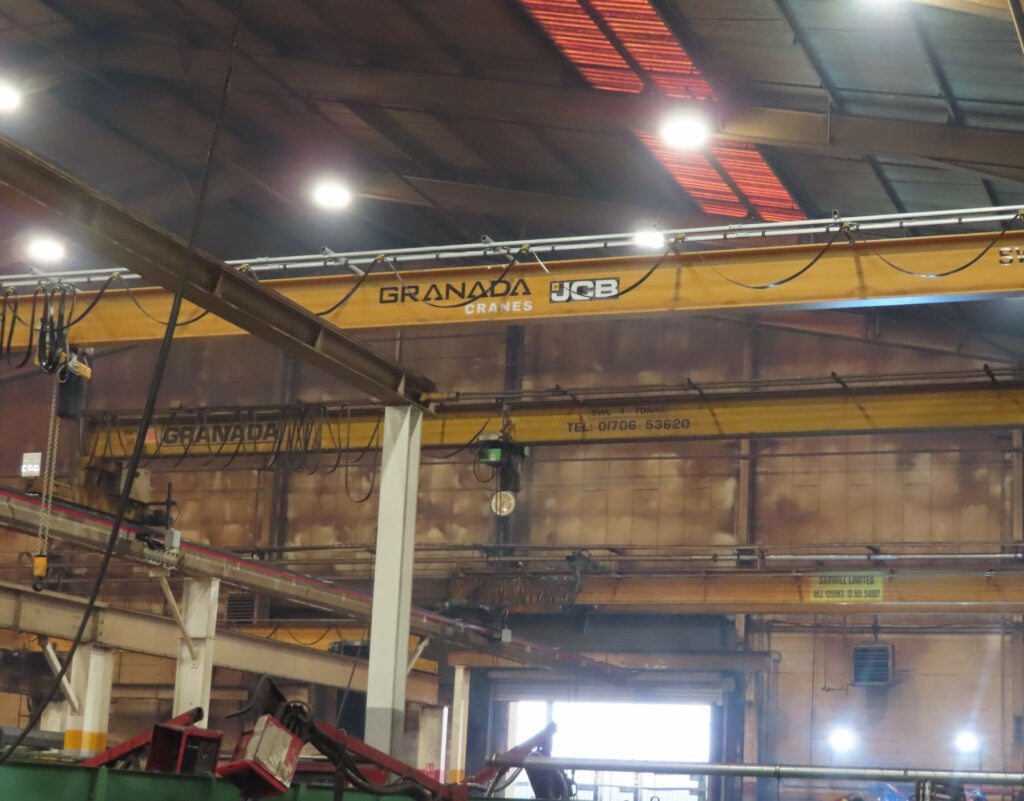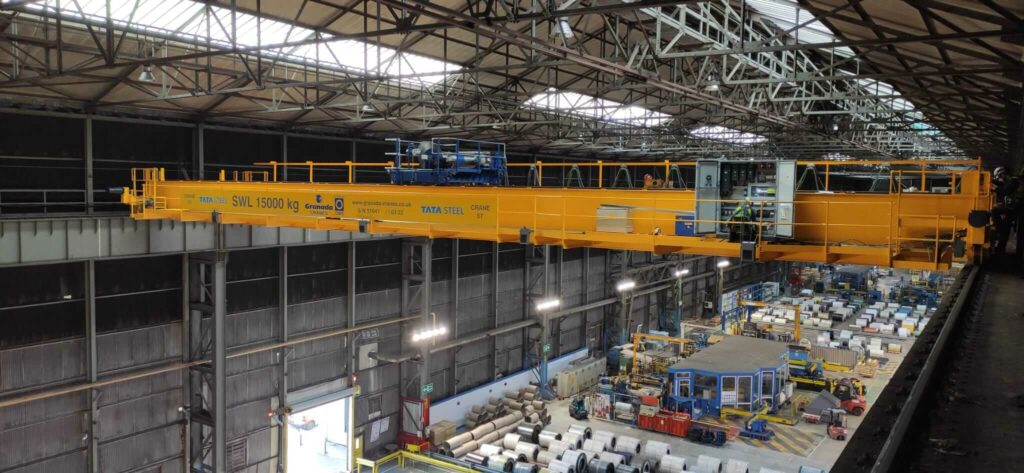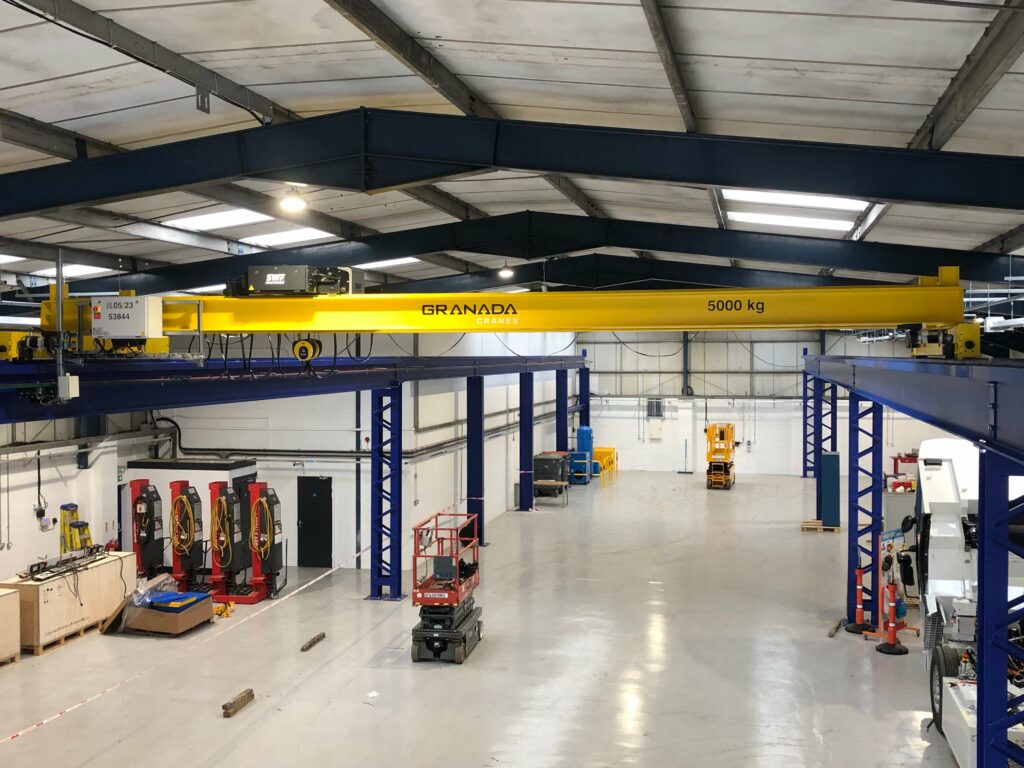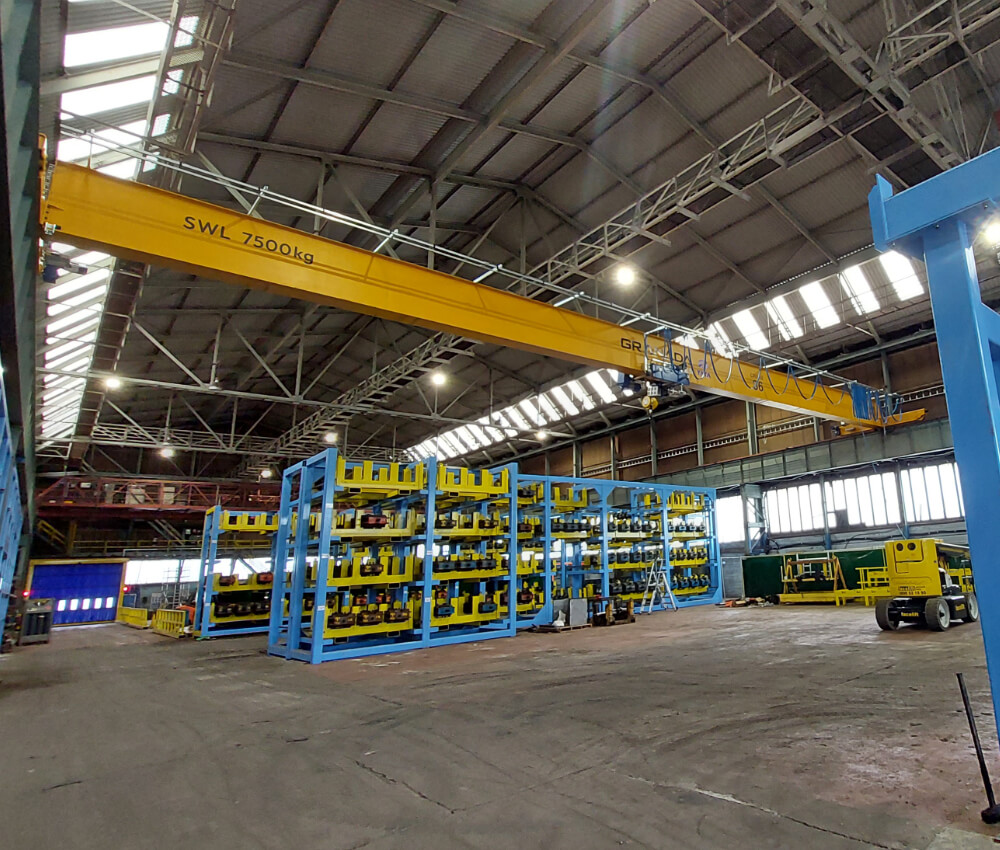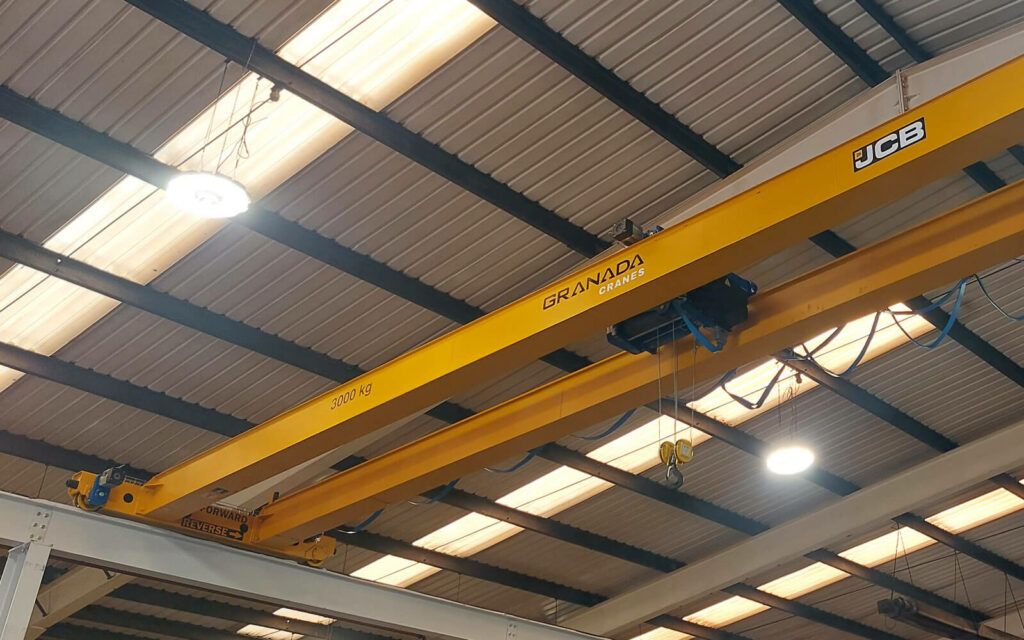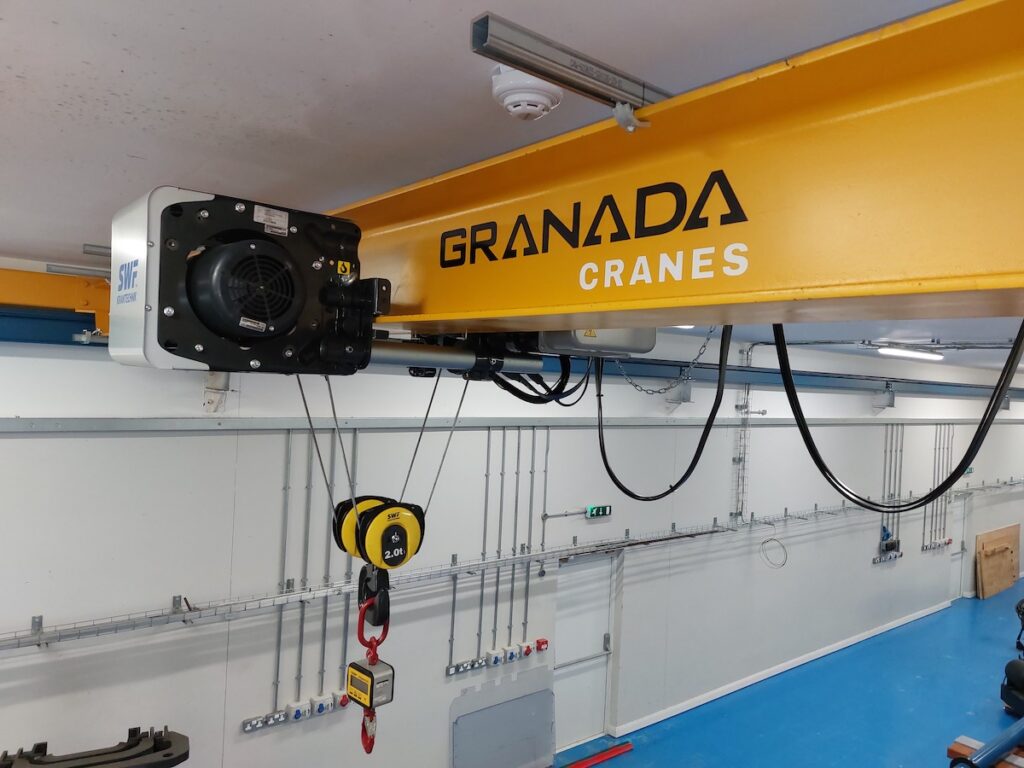At Granada Cranes, we offer bespoke maintenance and inspection services for crane and lifting equipment, tailored to meet your unique requirements. With a focus on expertise, efficiency, and safety, our comprehensive services provide you with reliable and cost-effective solutions to extend the lifespan of your equipment, minimise long-term repair costs, and ensure a secure working environment. Our commitment to delivering high-quality, professional services makes Granada Cranes the ideal partner for all your crane and lifting equipment needs across the United Kingdom.
What we do

Tailored Maintenance and Inspection Solutions
Granada Cranes understands the distinct differences between maintenance and inspection services. Our expert engineers provide thorough visual inspections, identifying and prioritising necessary repairs, while our maintenance visits include the added benefits of minor repairs, brake adjustments, and mechanical component lubrication. We offer flexible options to suit your unique requirements and budget, ensuring your lifting equipment remains in optimal condition.
Cost-effective and Reliable Services
Our crane maintenance contracts help to significantly reduce overhead crane costs, streamline scheduled repairs, and prevent lost production time. By investing in regular inspections and proactive maintenance, you can extend your equipment’s lifespan and minimise expensive long-term repairs, with most customers experiencing a 40-70% reduction in crane repair costs over a 24-month period.
Commitment to Safety and Compliance
Granada Cranes ensures that your lifting equipment meets all legal obligations for safety and thorough examination. Our competent and impartial engineers conduct inspections at appropriate intervals, in compliance with industry regulations. By partnering with us, you can be confident that your equipment is safe, reliable, and compliant, reducing the potential for accidents and ensuring a secure working environment.
Maintenance or Inspection, what’s the difference?
- Maintenance and Inspection are commonly confused as being one and the same thing when in actual fact they are completely different.
- An inspection is when an engineer carries out a thorough visual inspection of the crane and completes a report identifying and prioritising any necessary repairs. It includes nothing else.
- A maintenance visit also includes an engineer carrying out
a thorough visual inspection and compiling a report. However, unlike the inspection, it also includes repairs to minor faults to be carried out during the service, any necessary adjustments to brakes and lubrication of mechanical components where applicable.
In general, persons responsible for lifting equipment adopt one of two opinions towards maintenance and inspection contracts. The first is to cover their legal obligation by having their equipment inspected at the maximum permitted interval. The second is to implement a planned maintenance schedule whereby more frequent thorough visits are carried out. The planned maintenance contract has a higher initial cost (longer, more frequent visits) but with significantly noticeable savings over a longer period. Inspection only contracts have a small initial cost but can result in expensive costs being incurred in the long term.
Reducing crane costs and repairs that lead to lost production
Crane Engineer from granada carrying out maintenance tasks on an overhead crane
The most effective way to reduce overhead crane costs is with the implementation of a crane maintenance contract. By having the equipment thoroughly inspected at regular intervals any repairs found necessary can be scheduled for a convenient time when the crane in question is not needed or can be covered for. This reduces the chance of the crane becoming inoperative at a time when it is essential and slowing or even stopping production.
These repairs are quoted in order that our customers are aware of the total cost beforehand, whereas estimating the cost of a breakdown is impossible. Intercepting these problems at an early stage and repairing the faulty item will avoid unnecessary damage to otherwise good equipment and thus further reduce maintenance costs.
A maintenance contract is not only about reducing breakdowns and expensive repairs it is also largely about increasing the equipment’s ‘life span’ and safety. Lubricating applicable parts on a regular basis reduces wear and ensures the equipment will run in a good condition for as long as possible. Regular inspections will highlight the potential for a dangerous occurrence before it becomes an accident.
With the implementation of Granada’s maintenance contract and efficient breakdown support service over a twenty four month period most customers see a reduction in crane repair costs of between 40 and 70 percent.
What are your Obligations? How do I stay safe?
Employers must ensure that equipment is thoroughly examined before it is put into service for the first time and after any significant change that affects its operation. If the equipment is obtained from another undertaking, it must be accompanied by physical evidence that it has been examined.
Where safety depends on the installation conditions, it must be thoroughly examined on each occasion after installation or assembly and before use. Equipment must be thoroughly inspected at least every six months if intended for carrying people, at least every 12 months if used for other purposes, or according to a scheme devised by the examiner. Examinations should also take place after any exceptional event such as accident or dangerous occurrence.
Examinations must be carried out by competent persons who are sufficiently independent and impartial for objective decisions to be made. Examinations may involve the performance of tests as determined by the competent person.
Our processes & resources

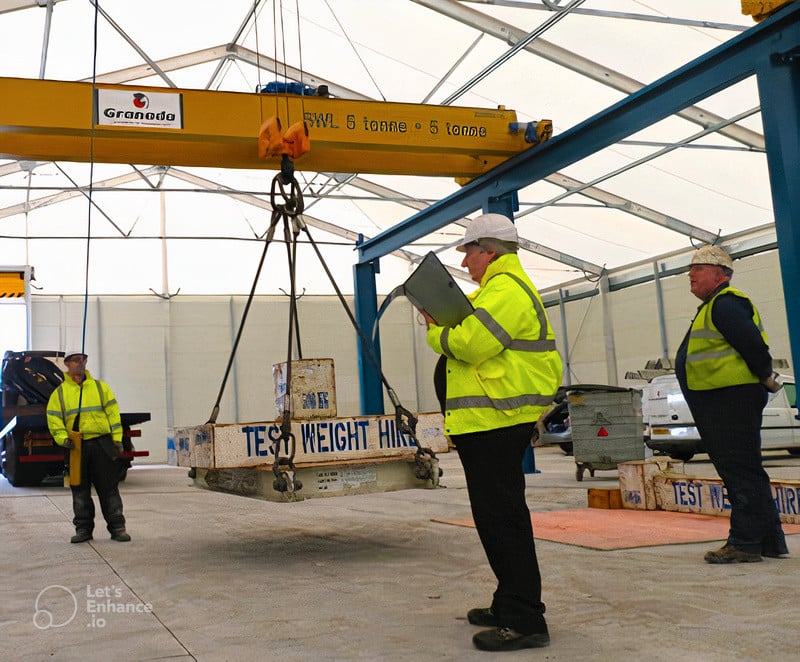
Testing & Certification
For all lifting equipment, ensuring it is fit for purpose and safe to utilise is of paramount importance. For newly developed equipment, it is vital that the design is accurate, with calculations performed by a qualified engineer. Nevertheless, for the end user, the most effective method of demonstrating suitability lies in testing and certification.

Records & Reporting
Since 2008 Granada has ceased to use paper as a means of recording and supplying information. All documentation completed by our engineers on‐site is carried out in electronic format on handheld tablets.

LOLER Examination
At Granada Cranes & Handling, we help alleviate some of the stress associated with your legal obligations to maintain a safe working environment by conducting thorough examinations of your lifting equipment in accordance with HSE and LOLER guidelines.

Online Customer Portal
Our Online Customer Portal, developed by Granada Cranes and Handling, is a user-friendly online database designed for clients managing their lifting equipment. The system can store all essential information pertaining to the equipment.
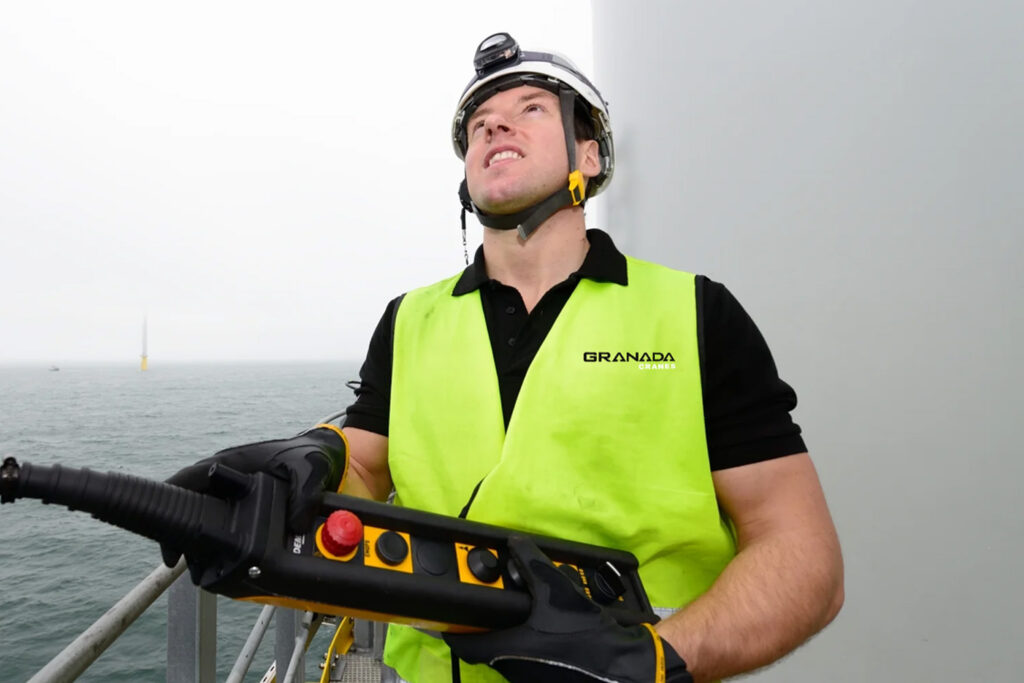
Training
At our Oldbury depot, we provide a comprehensive and diverse range of training services designed to cater to various needs. Our commitment to staff development is demonstrated through our internal training, which benefits both apprentices and engineers. Additionally, we extend our expertise to other companies with our external training offerings and provide specialised crane operator training to ensure the highest standards of operation and safety within the industry.

